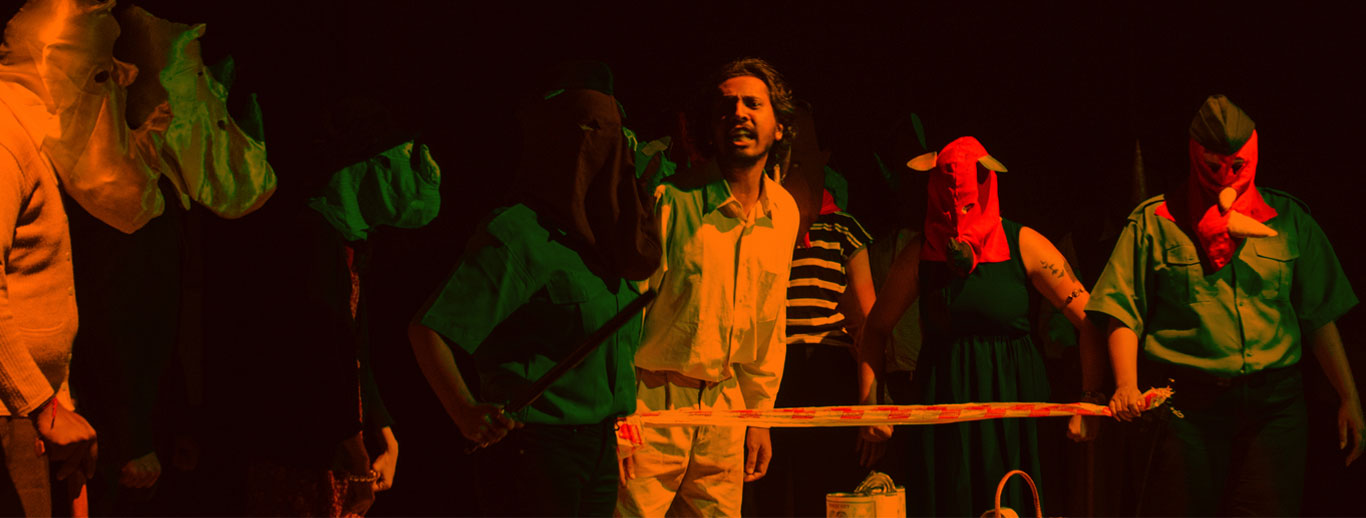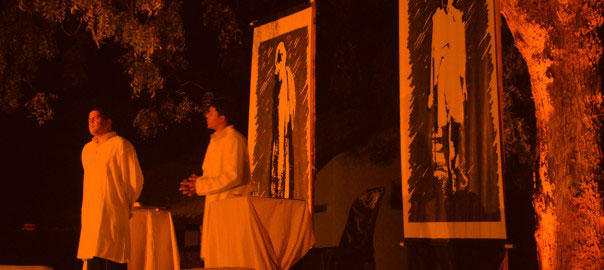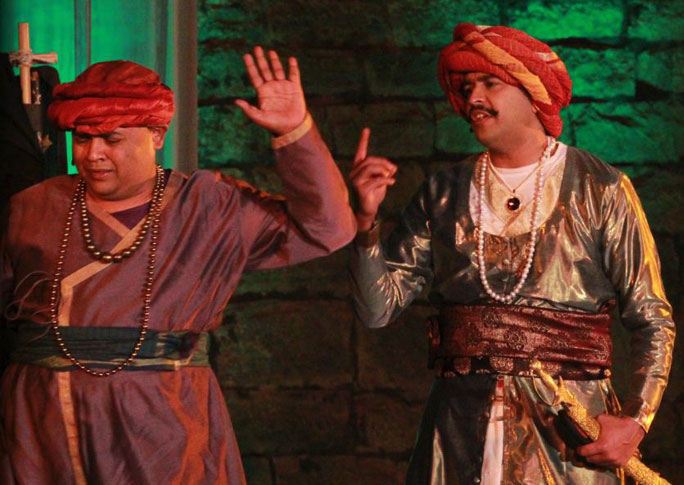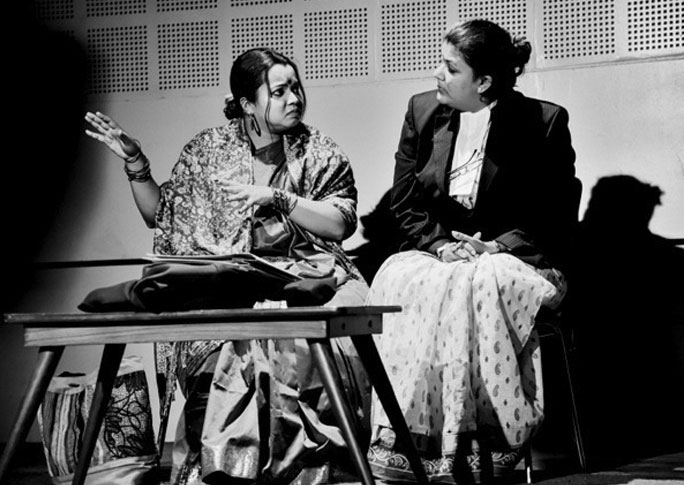BLT—The Group
• A unique identity
• Celebrating our Indianness
• The secret of a long and happy life.

The Emergence of BLT
Created in 1960, BLT has produced over 200 plays in 50 years. Producing plays through a wide membership base, involving the community in Bangalore, continues to be the main thrust of BLT. Around this are other related activities, such as play readings, film screenings, hosting visiting productions and meetings with artists.
A Unique Identity
In 1962, within a year of inception, BLT arrived at a character and identity for itself: to maintain pride in its strictly amateur status, but to conduct its affairs in a thoroughly professional manner. The group gave itself a constitution and, through that, a participatory style of functioning. The group was seen as belonging to a membership, and therefore to be managed by a transparently elected management team. The founding members were the first to give way to younger members to take the group forward. This investment in developing the future of the group’s membership was seen also in grooming new directors, actors, technicians and writers. Within a short space of five years the basic character of BLT was being set:
- An Indian theatre group with a global outlook
- Assimilating the best of British traditions in a new Indian environment
- Relating to Kannada and all other regional language theatre groups – actively assisting them.

Celebrating our Indian-ness
In February 2010, BLT was invited to present a paper at a national seminar on Urban Growth in Bangalore. BLT’s paper examined the role of English language theatre in the urban arts environment of Bangalore, taking a historical perspective from the pre-independence era. Extracts from the paper, reproduced below, serve to sum up BLT’s history in the context of the development of English theatre in Bangalore.
The secret to a long and happy life
Old-timers of BLT have often been asked the secret of the group’s long life when, in contrast, we see hundreds of cases of groups starting with a bang and dropping by the wayside in a couple of years. The difference, it seems, is in the simple fact that BLT is a membership organisation and, therefore, a genuine group. From this fact has followed a number of guiding principles that appear to have served BLT well over the years. For instance:
- Owned by the membership and not founder-centric.
- A transparent and participative ethos.
- Investment in good management practice, grooming people for responsibilities.
- Ensuring a line of directors, succession in leadership.
- Investment in outreach and developmental activity—reaching schools and colleges, training workshops and play development.
All of this actually makes it far more difficult to “manage” the organization. It is so much easier to let a charismatic leader take charge and “run” the group as he or she wishes. Many visitors from other cities (and other countries as well) have remarked that BLT continues to be a fun group, and yet pretty serious in the pursuit of its organization and management. An apt description of the group.
Across traditional divides
The significance of these principles is understood better when we see that a sizeable majority of the theatre talent in Bangalore, including the “big names”, has been in BLT productions, workshops and training programmes earlier. They continue as members of BLT even if they perform under other “banners”. Related to this point is one other indisputably important feature of BLT. It is the only English language theatre group in Bangalore (perhaps anywhere in India) with strong links to the local-regional theatre, building bridges across language divides. Many of the stalwarts on the Kannada stage and screen have been either life members of BLT or have been prominently involved in some capacity or the other. Indeed, BLT has been a substantial support to Kannada theatre groups in their start up stages and has always worked closely with Karnataka Nataka Academy.
Revisiting some highlights
Over the years, some of the initiatives we have set in motion are:
- Summer Project On Theatre (SPOT) BLT has invested heavily in training and outreach activity. In the late 70s BLT introduced, for the first time in Bangalore, a comprehensive introductory programme for newcomers to the theatre, based on the Stella Adler school of training. Since the mid ‘eighties the group has made its Summer Project On Theatre (SPOT) a regular training event. It has come to be recognised as the most prestigious training event in the city, because of the quality of inputs provided. And it continues to be absolutely free – a part of BLT’s social commitment. Other groups and productions snap up the talent from these training projects.
- Trainer-Training programme Most important, BLT has initiated a systematic Trainer-Training programme. Visitors from theatre centres abroad have expressed great admiration for this programme and the documentation of training methodology developed through the programme.
- Festival of Short Plays (SHORTS) In 1993 the group initiated an annual Festival of Short Plays (SHORTS), aimed at promoting theatre activity among the college and youth population. With the audience response as enthusiastic as seen, the scale of the Festival may well be enhanced considerably in the coming years.
- Academy of Theatre Arts (ATA) In 2006 BLT Foundation created a separate Academy of Theatre Arts (ATA) to concentrate on all training and theatre development activity, leaving BLT to concentrate on performance activity.
Linking to the world around us
As a socially responsible theatre society, BLT has readily taken on many a fundraising production for worthy causes. In 1970-71 BLT’s production of the new play by Badal Sircar, Evem Indrajit, was the first fundraising event to contribute to the Prime Minister fund for the Bangla refugee crisis. An original script, Head Start, by Vijay Padaki, was produced for CRY in January 1996. Since then BLT has made a constitutional commitment to dedicate one production for a charity every year. Through its considerable resources the group also provides various kinds of help to theatre projects in colleges, schools, clubs and other institutions.
ATA—The Academy
The strategic planning exercise BLT undertook in 2005 led to a restructuring of Bangalore Little Theatre Foundation and the creation of the Academy of Theatre Arts.

Play Development
Play Development works as a cross-cutting activity through several programmes of BLT and ATA. Not surprisingly, it finds a special place in the plans of the newly created Academy. The proposal now is to revive SHORTS, with an emphasis on:
A paucity of Indian plays in English.
